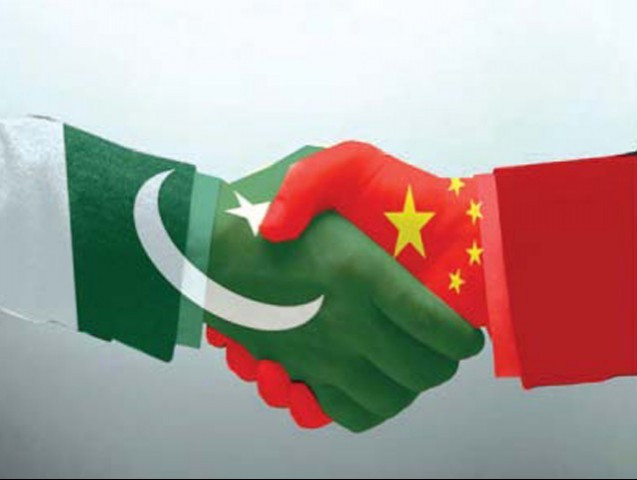Pak-China women's initiative aims to bridge gaps
Partnership will empower women through skill training and trade

The Pakistan-China Joint Chamber of Commerce and Industry (PCJCCI) has called for forging a transformative partnership to uplift women in both countries through the proposed Pak-China Women's Development and Employment Initiative.
Speaking in Lahore, PCJCCI Vice President Zafar Iqbal emphasised the urgent need to create structured opportunities for women to thrive in technical, vocational and entrepreneurial fields under the Belt and Road Initiative (BRI). The proposed employment initiative will not only address gender disparities but also harness the untapped potential of women for boosting economic growth and cross-cultural collaboration.
"Women in Pakistan and China possess immense talent, but systemic barriers often limit their access to markets, education and resources," Iqbal remarked. By launching this initiative, "we aim to build bridges, literally and figuratively, between women of both nations. Chinese expertise in vocational training and Pakistan's rich cultural heritage in sectors like textiles and handicrafts can create a powerful synergy."
As part of the initiative, the two sides plan to roll out free short-term courses in fields such as garment design, food processing, handicrafts, information technology and language training. These programmes will target young women, particularly in underdeveloped regions like Balochistan, where the Gwadar Free Zone is expected to become a hub of trade and industry.
"Gwadar's development requires a skilled workforce and women must be part of this journey. Imagine a tech-savvy woman from Gwadar coding for international clients or an artisan from Hunza selling embroidered crafts to buyers in Shanghai; this is the future we envision."
For many Pakistani women, the initiative sparks hope. Ayesha Khan, a 28-year-old entrepreneur from Lahore, who runs a small handmade jewellery business, shared her frustration because of the limited growth opportunities.
"I learnt basic stitching from my mother, but scaling up was impossible without formal training or market access. I tried selling online, but competition is fierce and I lacked the technical know-how to reach international buyers," she said.
Khan believes the proposed vocational courses and digital platforms connecting Pakistani and Chinese women could be a game changer. "If I can learn new design techniques from Chinese experts or use an online portal to sell directly to Chinese customers, it will transform my business," she added.
Similar enthusiasm echoes among Chinese women entrepreneurs. Li Wei, a clothing designer from Hangzhou, currently on a visit to Pakistan, expressed interest in collaborating with Pakistani artisans.
"Pakistani fabrics and embroidery are stunning; there's a growing demand here for unique, culturally rich products. But right now, it's hard to connect directly with artisans there. A joint platform could make this seamless," she said.
Li also highlighted the potential for knowledge exchange. "Chinese women have benefited from tech-driven industries. We could share insights on e-commerce and automation while learning from Pakistan's traditional craftsmanship."
The PCJCCI's plan is aimed at creating a sustainable ecosystem where skilled women can access markets, funding and mentorship. For instance, graduates of garment courses will receive support for launching small businesses or partnering with established factories.
"This is not just about teaching a skill; it's about creating a pipeline from education to employment," Iqbal said. He cited China's success in empowering women through rural e-commerce programmes, where farmers, mostly women, sold produce online with government-backed training.
However, despite the optimism, challenges remain. Societal norms in rural Pakistan often restrict women's mobility and access to education. PCJCCI acknowledges this and plans to collaborate with local non-governmental organisations (NGOs) and community leaders to encourage family support.
"We'll set up training centres in easily accessible locations and offer flexible timings," Iqbal said. Additionally, online courses will cater to women in conservative areas as they cannot attend in person.
By 2026, the initiative aims to train 50,000 women across Pakistan and China, with the goal of boosting female participation in BRI projects by 30%. "This is not charity; it's smart economics. When women win, our nations win," Li added.




















COMMENTS
Comments are moderated and generally will be posted if they are on-topic and not abusive.
For more information, please see our Comments FAQ